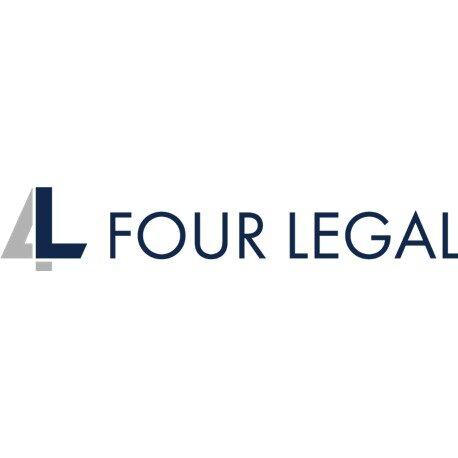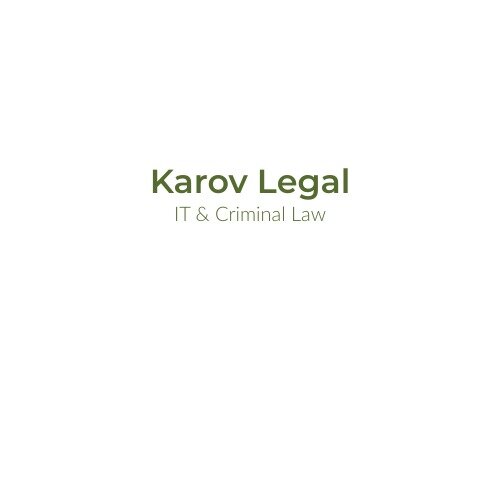Best Private Equity Lawyers in Serbia
Share your needs with us, get contacted by law firms.
Free. Takes 2 min.
Or refine your search by selecting a city:
List of the best lawyers in Serbia
Legal guides written by Business Law office - Advokatska Kancelarija:
- Why Invest In Serbia
About Private Equity Law in Serbia
Private equity refers to investment funds, often organized as limited partnerships, that buy and restructure companies not listed on public stock exchanges. In Serbia, private equity is an emerging field that has gained traction in the last decade. It primarily targets growth-oriented businesses, distressed assets, or companies ready for expansion. Private equity law in Serbia covers the rules and regulations associated with investments, acquisitions, fund structuring, shareholder rights, and compliance requirements. The legal landscape in Serbia is shaped by both domestic legislation and European standards, which influence market practices and investor protections.
Why You May Need a Lawyer
Engaging in private equity transactions often involves complex legal considerations. Here are some common situations where hiring a lawyer is crucial:
- Structuring private equity funds and choosing the appropriate legal entity
- Drafting and negotiating investment agreements
- Compliance with Serbian financial and corporate laws
- Managing due diligence processes on target companies
- Ensuring tax efficiency and navigating cross-border regulatory issues
- Resolving shareholder disputes or enforcing minority protections
- Exiting investments, such as through sale or initial public offering (IPO)
- Securing regulatory approvals from Serbian authorities
Having expert legal advice helps minimize risks, ensures compliance, and protects the interests of all parties involved.
Local Laws Overview
Private equity transactions in Serbia are governed by several key legal frameworks, including:
- Law on Companies: This sets out the rules for company formation, management, mergers, and acquisitions.
- Securities Market Law: Governs public and private offerings, registration, and trading of securities.
- Law on Investment Funds: Regulates the structure and operation of investment funds within Serbia.
- Foreign Investment Laws: Allow foreign investors to own Serbian businesses, subject to certain notification or approval requirements.
- Competition Law: Ensures that transactions do not violate antitrust rules and sometimes requires merger control clearance.
- Tax Regulations: Tax impact is significant for structuring deals and determining returns on investments.
Serbian private equity transactions must often navigate both local and international standards, especially where foreign investors are involved. Legal counsel ensures that structuring, financing, and execution meet all legal requirements.
Frequently Asked Questions
What is private equity?
Private equity refers to investments made in privately held companies (not listed on the public stock exchange) with the goal of enhancing their value and eventually achieving a profitable exit, such as through a sale or IPO.
Is private equity investment allowed for foreign investors in Serbia?
Yes, Serbia allows foreign investors to establish and co-own businesses, including through private equity funds. However, some sectors may require specific approvals or involve restrictions.
What legal structures are used for private equity funds in Serbia?
Private equity funds in Serbia are typically set up as limited liability companies or limited partnerships, but the Law on Investment Funds also enables the establishment of dedicated investment fund structures.
What are the main regulatory bodies overseeing private equity in Serbia?
Key regulators include the Serbian Securities Commission (for licensing and oversight of funds), the Commission for Protection of Competition, and the National Bank of Serbia (for certain cross-border transactions).
How is due diligence conducted in a Serbian private equity deal?
Due diligence involves a legal, financial, and operational review of the target company. Lawyers often review company formation documents, contracts, intellectual property, compliance status, and litigation records.
Are there any restrictions on repatriating profits from private equity investments?
Generally, Serbia allows foreign investors to repatriate profits, dividends, and capital gains, subject to standard tax withholding and compliance with foreign exchange regulations.
How are minority shareholders protected in Serbian private equity deals?
Serbian law provides specific rights to minority shareholders, such as information rights and certain veto powers, which can be strengthened through shareholder or investment agreements.
What is the typical process for a private equity exit in Serbia?
Common exit routes include company sales to strategic investors, secondary buyouts, or listings on the Belgrade Stock Exchange. The chosen route depends on market conditions and the company's growth stage.
How are private equity transactions taxed in Serbia?
Both corporate and capital gains taxes may apply, depending on the structure and residency of the investor. Tax planning is a critical component of private equity deal structuring in Serbia.
What happens if there is a dispute between parties in a private equity deal?
Disputes are typically resolved through negotiation, but may escalate to litigation or arbitration. Well-drafted contracts usually specify dispute resolution mechanisms and governing law.
Additional Resources
The following resources and organizations can provide useful information and guidance related to private equity in Serbia:
- Serbian Securities Commission
- National Bank of Serbia
- Serbian Chamber of Commerce
- Commission for Protection of Competition
- Serbia Business Register Agency
- Local law firms specializing in corporate and investment law
- Industry associations, such as the Serbian Private Equity Association (if available)
These bodies offer regulatory information, updates on legal changes, and sometimes maintain lists of accredited funds and investment advisers.
Next Steps
If you are considering entering into a private equity transaction or managing an existing investment in Serbia, it is advisable to:
- Identify your goals and the scope of your investment or deal
- Gather relevant documentation about your business or target company
- Contact a qualified Serbian lawyer specializing in private equity for an initial consultation
- Discuss your needs, including fund structuring, regulatory approvals, and tax considerations
- Work with your legal adviser during negotiations, due diligence, and deal execution to ensure compliance and protect your interests
Taking these steps early can help you avoid legal pitfalls, streamline the investment process, and maximize your returns in the Serbian private equity market.
Lawzana helps you find the best lawyers and law firms in Serbia through a curated and pre-screened list of qualified legal professionals. Our platform offers rankings and detailed profiles of attorneys and law firms, allowing you to compare based on practice areas, including Private Equity, experience, and client feedback.
Each profile includes a description of the firm's areas of practice, client reviews, team members and partners, year of establishment, spoken languages, office locations, contact information, social media presence, and any published articles or resources. Most firms on our platform speak English and are experienced in both local and international legal matters.
Get a quote from top-rated law firms in Serbia — quickly, securely, and without unnecessary hassle.
Disclaimer:
The information provided on this page is for general informational purposes only and does not constitute legal advice. While we strive to ensure the accuracy and relevance of the content, legal information may change over time, and interpretations of the law can vary. You should always consult with a qualified legal professional for advice specific to your situation.
We disclaim all liability for actions taken or not taken based on the content of this page. If you believe any information is incorrect or outdated, please contact us, and we will review and update it where appropriate.
Browse private equity law firms by city in Serbia
Refine your search by selecting a city.

















